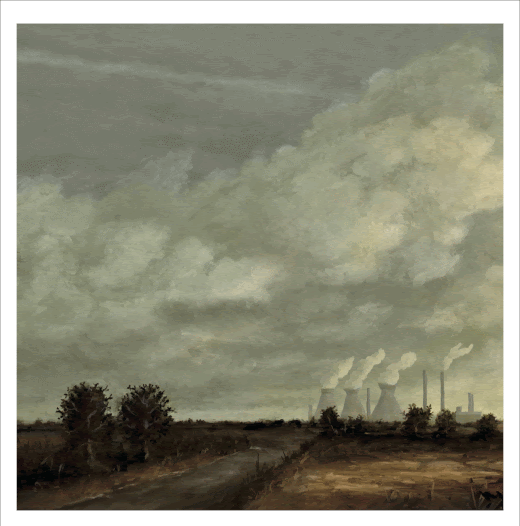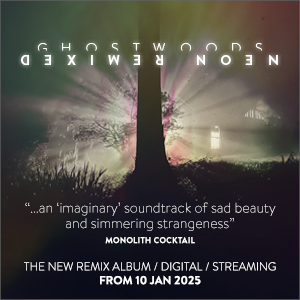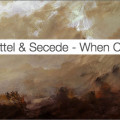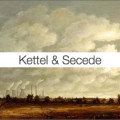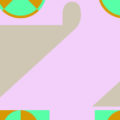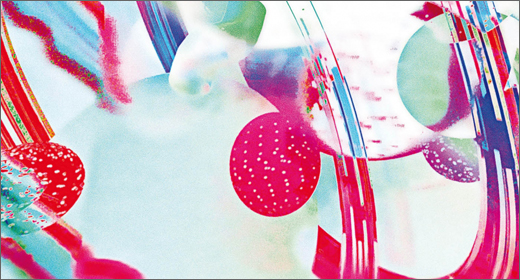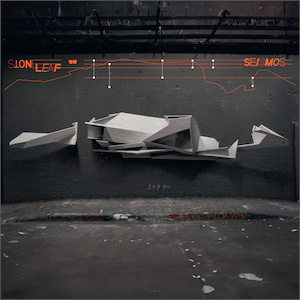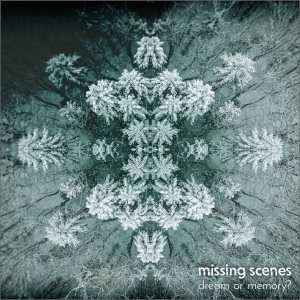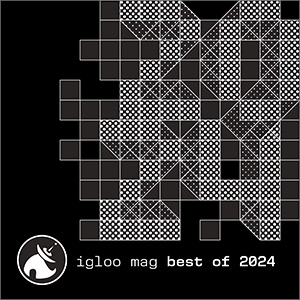And so we come to When Can, the strangely enigmatic and oft-overlooked collaboration between Kettel and the equally elusive Secede. I’ll admit to being as surprised as I was delighted when Lapsus announced its reissue as a deluxe vinyl edition because it’s an album I adore, so much so this is now the third time I’ve written about it.
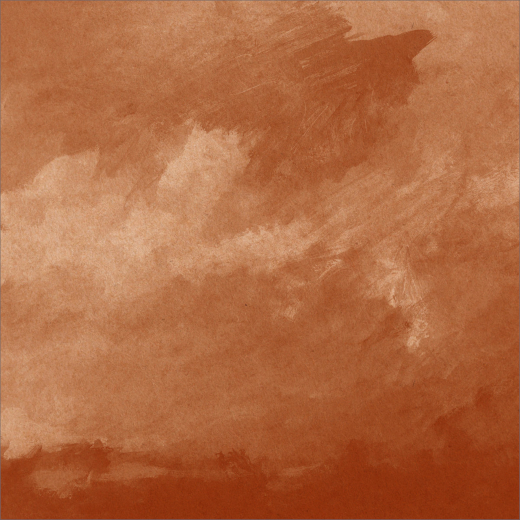
The kind of genre-dodging playfulness that they’ve always been so good at
The Barcelona-based Lapsus Records‘ Perennial Series is a no-nonsense project dedicated to meticulously curated vinyl reissues that kicked off with the expanded and remastered Myam James Part I by Kettel, originally released back in 2008 on the lamentably defunct Sending Orbs label. As good a statement of intent as any, the series has since spun out in various directions, at first reissuing the works of IDM artists like Secede, Ochre, and Gimmik before spinning out into electro, house, hauntology and techno from Ed Chamberlain, Swayzak, Pye Corner Audio and Kirk Degiorgio’s As One.
The result of what has clearly been a labor of love for the label has become an essential and truly collectable series, featuring a distinctive in-house art style that sees the original—often previously CD only—covers of each release either tastefully reimagined or revisited from scratch to create sepia artwork variants overprinted on a sort of chipboard background. This is then topped off with an art print insert either of the original or brand new artwork. When the results are as stunning as the near-perfect reissue of Ochre’s magnificent Lemodie, or the five disc box set of Pye Corner Audio’s Black Mill Tapes series… well… let’s just say the effort is worth it.
And so we come to When Can, the strangely enigmatic and oft-overlooked collaboration between Kettel and the equally elusive Secede. I’ll admit to being as surprised as I was delighted when Lapsus announced its reissue as a deluxe vinyl edition because it’s an album I adore, so much so this is now the third time I’ve written about it. Yet for some reason it’s an album I’ve rarely returned to since its initial release. Why is that? When it’s this good?
As soon as the match struck ::
As soon as the match struck, “A New Factory” lights the lamps that illuminate the landscape for the rest of the album; it’s obvious that it’s a memorable opening to an album whose tone—I think it’s fair to say—took many people by surprise. Cinematic but in a quaintly pastoral, almost folkloresque manner, it’s rarely dark or brooding, of its time or edgy, instead embracing shades of golden light, dusky hues and an approach to content that is… diverse, to say the least.
At the time some people talked about this album feeling overproduced or too polished. It is neither, it’s just… complicated. Fantastical, even. The very next track “Kirsten” treats us to a stunning blend of reverb-drenched choral vocals, sweeping strings, slide guitar, kalimba, whispered voices… all perfectly blended together in an almost chaotic fashion that typifies the rest of the experience.
Gregorian chants echoing in counterpoint to military marching drums, Edwardian harpsichord tinkling over kettle drums, operatic vocals, staccato lute and—yes—a mouth harp all together on one track shouldn’t work, but neither should it come as a surprise to those familiar with Kettel and Secede’s output. It’s exactly the kind of genre-dodging playfulness that they’ve always been so good at.
When Can also dodges traditional electronic album pacing with its fair share of divergences and interludes, a common appearance in Kettel’s work in particular dating back to My Dogan, with which this album shares very little in terms of style and sound palette but something in diversity. Those that dislike whimsy or humor in their music are never going to take to stuff like the unhinged “Pentimento” but even in sidebars like this there’s not a moment wasted, still filled to the brim with inventive ideas.
Does it lose a bit of steam through its midsection during the lushly atmospheric “Missing Time,” filled with plucked harp sunbeams shining through a hazy forest of strings, the meandering “Jahe,” all tumbling clonks, plonks and twangs more texture than substance and finally the almost elven “Deliria Noon?” Perhaps. But it is no less beautiful for it. And in any event, “Fullmoon” kick-starts the trek uphill upbeat with owl-like birdsong, steel drums, cow-bells, marimbas, maracas, bluesy vocal samples and catchy whistled chorus following in the gyrating midnight mardi-gras that is “Fullmoon.”
The penultimate “Grandcan” is another short, melodic and finally piano-led pause for thought before “Canned Forever” pans across to a miasma of squeals, squawks, quacks and snuffles of wildlife mixed with earth-baked keys and sprawling strings, slowly unveiling the repeated falsetto, lovelorn choral cries of “Forever!”
Coda ::
As with (almost) every release in The Perennial Series, there’s almost always something extra to enhance the experience, and in When Can’s case it’s a two-track epilogue pressed onto a third 10″ vinyl disc and not one, but two 12″ x 12″ art prints of the original artwork by Jeroen Advocaat.
As good if not better than anything else on the album, “Zipvanes” transforms the original album track “Ringvanes” into a near ten-minute odyssey of epic proportions with an extended ambient introduction, more layered percussion, and a frenzied banger of a hi-energy section at the five minute mark. This is god-tier Kettel & Secede, one of the finest things the duo have ever produced, a magnificent coda and on its own the perfect reason to procure this album again if you once owned it on compact disc.
Following this was never going to be easy, and consequently the flipside “Spoonful” feels rather divorced from When Can when placed last, neither quite worthy successor nor successful album-closer. Had it been inserted into the running order of the album itself it probably would have worked way better, and one can hear how thematically keyed it is to the album as a whole. But for completists, it is here.
I will never be able to understand what made me lose sight of this album in all those years past. Listening to it again now doesn’t make me feel nostalgic because without dates I could barely remember what other albums were released at a similar time. It is simply timeless. Each listen is just a joyous enigma.
Rare. Possibly unique. Enjoy.
When Can (Deluxe Edition) is available on Lapsus, Perennial Series. [Bandcamp | Site]










